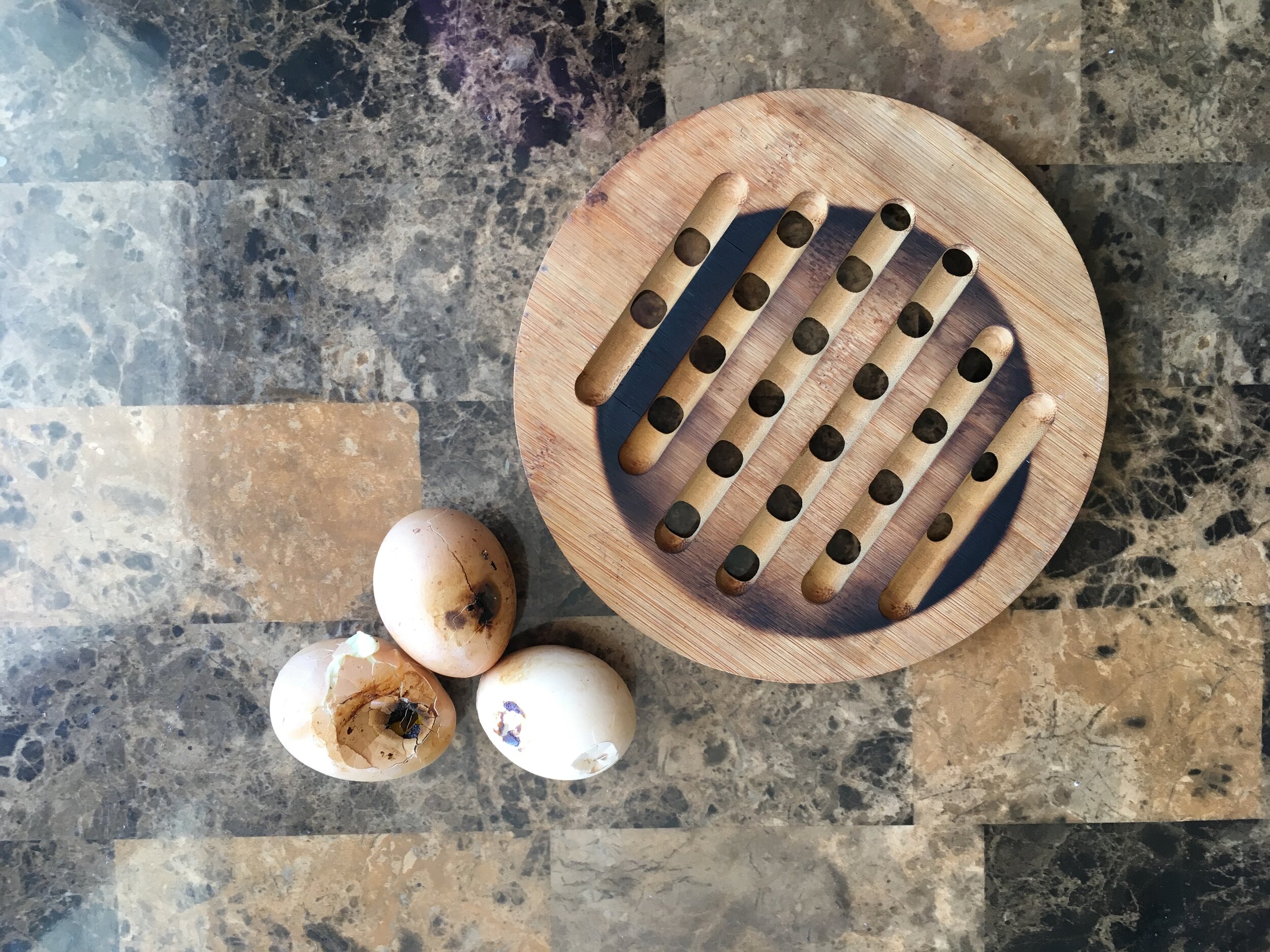Here’s the interesting thing about stories: They’re only interesting if there’s some sort of climax, and usually, unfortunately, that’s a negative climax.
You wouldn’t want to read about my successful egg boiling situation, because, well, that’s boring. You’ve boiled eggs successfully hundreds of times in your life. Why would you care that I can do it too?
HOWEVER. If I had an egg boiling ALMOST DISASTER, wouldn’t that make you just a little bit curious?
I thought so.
Me: The Unsuspecting Gardener
I got back from my bike ride this morning, went inside, and put a small pot of water on to boil with three eggs in it. I’ve done this dozens of times, but usually I’m taking a quick shower, and it produces the perfect hard boiled eggs (but that’s not very interesting, really). This time, instead of taking a shower, I went back outside. I made a mental note to come in after a few minutes and turn the pot off.
I took Sunday (the dog, not the day) out. While refilling the water in the garage for her and the kitties, I realized my flowers needed to be watered. So I gave the dog breakfast and watered my flowers. Thinking the eggs must be just about done, I headed for the house.
And as soon as I opened the kitchen door, I knew that something had gone terribly wrong. The house smelled awful, an acrid mixture of smoke and burnt eggs. My pot lid was whistling. I crossed from the door to the oven in two steps and pulled my pot off the burner, to discover that the water had boiled out of the pot all over the stovetop.
After determining the two culprits, an over eager burner and my forgetful gardening impulse, I brought the whole mess outside and put it on a trivet on the front stairs, where two of our cats stood and looked at it.
Fortunately, that’s the happy end of the story. I cleaned the pot with dish soap and steel wool. The cats didn’t make the terrible mistake of eating the burnt eggs. I made more eggs, and ate them on a bagel with cream cheese (10/10 would recommend, using not-burnt eggs and not-stale bagel—but The Stale Bagels will have to be Part 2). I did scorch the trivet, but that’s an insignificant damage, all things considered.
Humpty Dumpty—The Sequel
After the positive conclusion to the whole episode, I had an interesting realization.
What are the momentary emergencies—watering flowers—that distract me from important priorities, like cooking eggs and keeping the house from burning down?
I’ll be thinking about it, and for now, I might be taking a break from hard boiled eggs. At least during gardening season.


